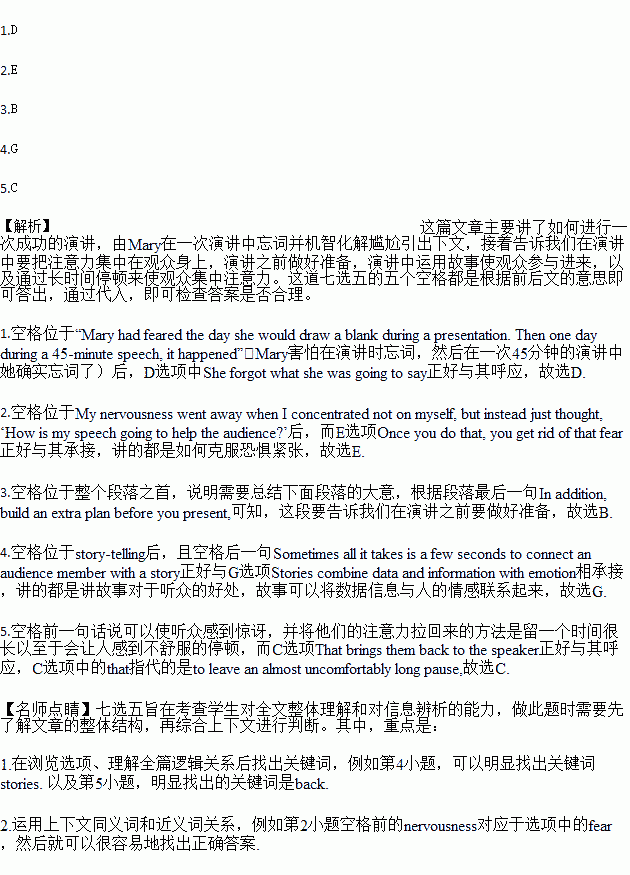题目内容
Mary had feared the day she would draw a blank during a presentation. Then one day during a 45-minute speech, it happened. 1.. To help herself get back on track, Mary asked the audience to look at the handout and tell her what topic was up next. At the end of her presentation, audience members gave her top marks for organization.
“What I learned is that the audience doesn’t care if you mess up, and what they care about is what you are going to do about it,” Mary said. “My nervousness went away when I concentrated not on myself, but instead just thought, ‘How is my speech going to help the audience?’2.. Every single step of the way,ask yourself, ‘What’s in it for them?’”
● 3.
Carter is the founder of Canada-based presentation skills training company. When possible, he gets to the location of his presentation the day before to make sure all the electronic aids work. He wants to ensure the screen, lighting and inputs all work properly. “In addition, build an extra plan before you present.” he said.
● Involve the audience
Whether you are giving a one-on-one talk or a speech in front of 400 people, think “story-telling” . 4.. The way to a person's head is through his heart. Sometimes all it takes is a few seconds to connect an audience member with a story.
. 4.. The way to a person's head is through his heart. Sometimes all it takes is a few seconds to connect an audience member with a story.
Moreover, one thing that shocks people back into attention is to leave an almost uncomfortably long pause. 5..
A. Keep order
B. Be prepared
C. That brings them back to the speaker
D. She forgot what she was going to say
E. Once you do that, it gets rid of the fear
F. Story-telling makes messages easy to remember
G. Stories combine data and information with emotion


 ct and talk about something else. But I was wrong. He was silent for a few minutes, and then he ______ to tell me all about his friend.
ct and talk about something else. But I was wrong. He was silent for a few minutes, and then he ______ to tell me all about his friend. like waiters.
like waiters.